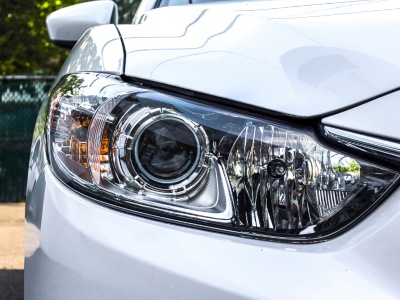How Much Should you Spend on a Second-Hand Car?
Car
2
min read
22 Jan 2021

4WheelGuide: Your roadmap to buying a new or used car
Saving money means making good choices on the two main expenses in your life: your car and your home. It doesn’t matter if you never splurge on anything else – If you pay more than you should for either of these, you might find yourself strapped for cash in other places. So how much should you spend on a car? How can you keep this required purchase from breaking your monthly budget and get a car that makes you happy?
So - how much should you spend on your used car? It is, of course, completely up to you, and depends on variables such as your lifestyle, outgoings, income etc. As much as we would love the all-knowing, all-seeing, forever-wise finance fairy to appear and make all our financial decisions for us with a puff of glittery dust – alas, we must trust our own judgement. We have though, tried to assist your decision by including a very loose, top level spending guide below, according to MoneyUnder30.
If you’re opting to finance your car purchase with a car loan, it’s up to you how long you spend paying off that loan – which can be a deciding factor between a newish BMW or a mid-range Ford Focus, but it’s best to aim to have your loan paid off within 3-5 years. Using our handy car loan calculator you can easily set the amount you want to borrow and the term of your loan to find out the monthly repayments.
So, here are some options to consider:
1. The general option: spend 35% of income on your car
This is more of a catch-all approach. As it is a significant chunk of your income, it might be preferable to be making average or above average wage, have a lot of love for the ole’ motors, and have a capacity to repay over a longer period, if you were to take out a loan.
Looking at the average annual earnings for full-time employees of €48,946, taken from the latest CSO Statistics available, this would give you a budget of €17,000.
2. The frugal option: spend 10% of your income on a car
This will be based on life choices, but spending 10% of your income on a car would be the wisest choice – and you may still get a car with acceptable mileage for €4,000-€5,000, based on an average income.
3. The compromise option: spend 20% of your income on a car
While attractive budget wise, when buying second-hand due diligence is required to ensure that you get the value for your money. If you’re not careful they can often end up costing you more than a new one. You need to take into account maintenance, fuel economy and repairs expenses when setting your budget as well as buying a car young enough for reliability purposes. If you spend 20% of your income, based on the Irish average income this would give you a budget of just under €10,000.
That’s all great, but let’s say I have €10,000 to spend on my car, what do I look out for when spending my money?
In terms of what to know what to invest this money in, just make sure to go for a level up from basic and prioritise the following:
1. Car Mileage & Condition
As per our article here on steps to buying your first car, watch out for the mileage milestones and always take it for a test drive. Check the condition of the car, level of wear and tear, status of the engine, repair history etc., as well as the more obvious tells of paint work and interiors. It may be worth getting mechanic to have a look at the car for you before you purchase. The CCPC has a handy checklist that you can use.
2. Car Colour & Model
If you’re hoping to resell the car, make sure it’s grey, black or ivory – the top selling colours in Ireland in 2020 according to the SIMI. It is also advisable to go for newer models that are popular in the market. This will ensure that spare parts are easily available. Check out the most popular brands and models for 2020 on the SIMI website here.
3. Check it's not already under finance or has been in an accident
According to myvehicle.ie, one in every six Irish vehicles have outstanding finance owed on them and four in every ten written-off Irish vehicles are back on the road! If you are unsure, or purchasing from a private seller a small outlay on a vehicle history check could save you big in the long run. There are a number of companies that can do this for you such as cartel.ie, motorcheck.ie and myvehicle.ie.
So, to conclude - plan your budget carefully based on your income and make sure you buy a car that gives you personal freedom and not financial difficulties. Don’t spend more than you can afford and if you need to finance your purchase check out our handy loan calculator or submit a loan enquiry today to your local credit union.
Keep an eye out for #4WheelGuide across Facebook, Twitter, or Instagram for more great advice on  budgeting, choosing and buying your car as well as design and style ideas and inspiring stories – so you can gear up for the car of your dreams.
budgeting, choosing and buying your car as well as design and style ideas and inspiring stories – so you can gear up for the car of your dreams.
If you need any help with budgeting or financial support with your project, (big or small) don’t hesitate to contact your local credit union - we’re here to help.
Submit an Online Loan Enquiry